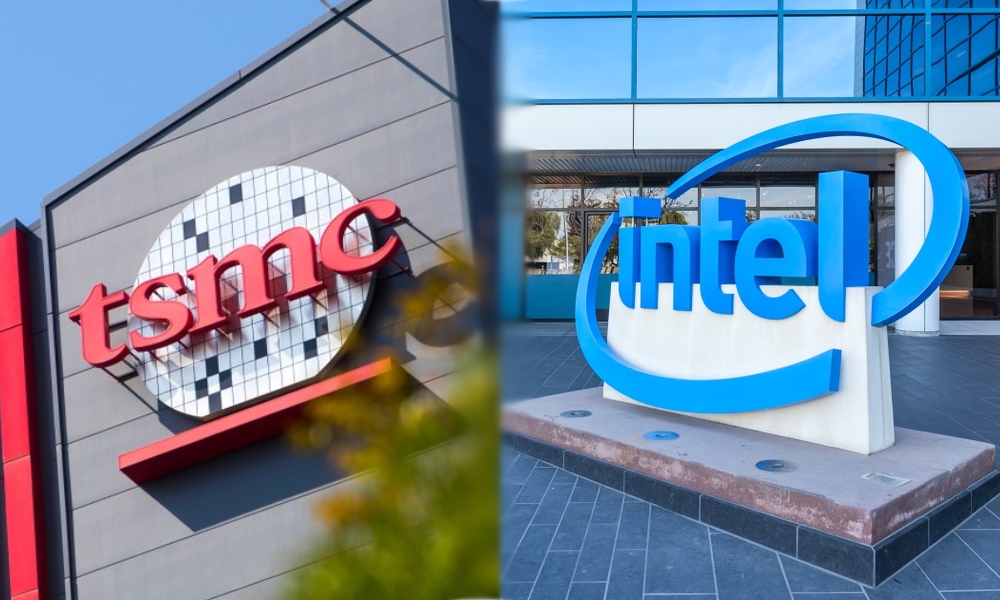Apple Chip Supplier TSMC May Run Intel’s Chipmaking Facilities

Toggle Dark Mode
Apple chipmaking partner Taiwan Semiconductor Manufacturing Company Limited (TSMC) has reached a preliminary agreement to operate Intel’s chipmaking facilities. The Information reports that TSMC will have a 20% stake in the new combined firm, with Intel and other semiconductor makers owning the majority of the shares.
While discussions are ongoing, and the final details have not been set in cement, part of the deal sees TSMC possibly sharing some of its chipmaking processes with Intel, training the American chipmaker’s employees to use the methods. The TSMC/Intel talks were reportedly initiated by US President Donald Trump’s administration as part of its effort to bring more advanced chipmaking to the United States and to put the brakes on Intel’s decline.
As noted by Mactrast, Intel lost $18.8 billion in 2024 due to its investments in chip manufacturing and a weakening PC market.
Intel and TSMC have long been major rivals, competing for chipmaking business from Apple and other device makers. Apple first began using Intel chips in its Macs in 2006. The change was first announced at the company’s Worldwide Developers Conference (WWDC) in 2005 by then-Apple CEO Steve Jobs, who announced Apple would no longer be using PowerPC microprocessors supplied by Freescale (formerly Motorola) and IBM, transitioning its Mac lineup to Intel’s x86-64 processors.
Apple used Intel processors in all its Macs until 2020 when the Cupertino firm began using its own internally designed Apple silicon processors manufactured by TSMC.
TSMC is strictly a chip manufacturer, not a designer. Design is handled by TSMC’s customers, including Apple, AMD, ARM, Broadcom, Nvidia, Marvell, MediaTek, and Qualcomm. TSMC’s focus on manufacturing chips has allowed it to move ahead of Intel in the chipmaker race, producing cheaper chips and higher production yields.
Intel executives are concerned that the TSMC deal will result in layoffs. Intel would likely eliminate many engineering positions while also needing to retool the equipment it uses to fabricate chips. The two companies use differing materials and machinery, so adopting TSMC’s manufacturing processes will result in Intel selling off much of its existing machinery.
In early March, it was announced that TSMC would invest an additional $100 billion in facilities in the United States, which will see the Taiwanese chipmaker build five additional factories in the country over the next few years. President Donald Trump said at the announcement that manufacturing processors in the United States was a matter of national security.
“We must be able to build the chips and semiconductors that we need right here,” Trump said. “It’s a matter of national security for us.”
TSMC announced the manufacturing expansion will include three new chip fabrication plants, two advanced packaging facilities, and a research and development center.
Trump has pushed companies like TSMC to bring more of their chip production inside of US borders to boost domestic chip production and lessen the electronics industry’s reliance on Asian-produced semiconductors.
In 2024, TSMC agreed to expand its planned investment in US facilities to $65 billion and build a third factory in Arizona by 2030.
A TSMC/Intel partnership will be looked upon with favor by the Trump administration, who has pushed from day one of the administration to bring more electronics manufacturing back to the US.







